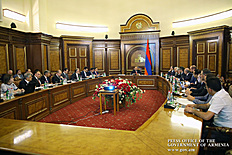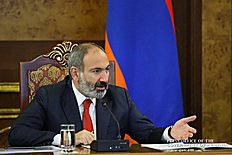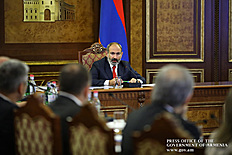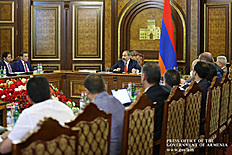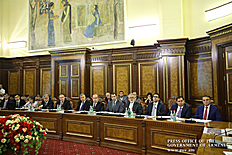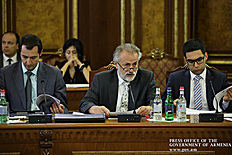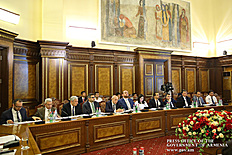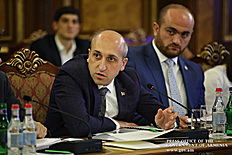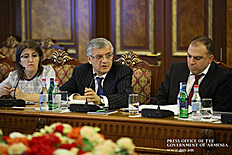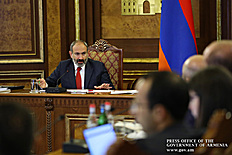Press releases
Government to allocate 3 billion drams to deal with housing problems in the disaster zone: PM holds consultative meeting
more 7 photos
Prime Minister Nikol Pashinyan called a consultative meeting to discuss the Government’s actions aimed at addressing the 1988 Spitak earthquake’s consequences. Nikol Pashinyan reminded that as held on December 7 last year in Gyumri, the outgoing Cabinet meeting decided to establish a working group to take stock of the problems faced in the disaster zone and determine the scope of work to be done in this direction.
“Unfortunately, we know that many people still live in cabins, and we set the task to clearly formulate the way we see the solution to this problem and determine the total cost, that is, the amount of necessary funding. There is a second task, namely to consider the matter from the perspective of urban development. Since if we consider the question only in housing terms, then, most likely, we will end up in a situation where Gyumri, Vanadzor or other localities may face urban development-related constraints. In general, I mean that urban planning is of great importance, because I believe it to be a key mechanism that shapes the forms and models of public mentality. For example, I am convinced that Alexander Tamanyan outlined a new vector of civilization in Armenia, which underlies our present-day reality. I also consider it not accidental that Tamanyan’s Republic Square became the epicenter of our non-violent velvet revolution; I say this without any exaggeration,” Nikol Pashinyan noted.
The Prime Minister said that the government plans to allocate 3 billion drams for addressing the housing problems of citizens in respect of which the state has assumed a de jure obligation under its medium-term spending program.
“The problem calls for 3 billion drams, and we allocate these funds to close this topic once and for all. Of course, we cannot say that the issue will thereby be resolved to the last detail, because a second question arises here: how can these 3 billion drams turn into a practical result? Here we have two options. The first option is to implement the project through certificates for the purchase of apartments, the second is through construction. Both of these options have their advantages and disadvantages, and we are in for a serious discussion.
Of course, the option of certificates has a great advantage: if we give the citizens 3 billion drams as quickly as possible, we fulfill our commitment, while the citizens will to some extent enjoy flexibility in their decisions. But there are other opinions that we should also discuss. Our current agenda is to clearly define the scale of the problem and the scope of work, find solutions and solve the problem so that Gyumri and other earthquake-affected settlements could come out of the current urban development-related deadlock,” the Premier stressed.
Chairman of the Urban Planning Committee Vahagn Vermishyan noted that, although the process of synthesis and refinement of data is still ongoing, at the end of June 2019, the committee summed up and summarized the information received. In particular, as of June 28, information was collected about 7,219 non-core buildings in the Shirak, Lori and Aragatsotn regions. 3530 of them are located in Shirak, 3531 - in Lori, 158 - in Aragatsotn.
The main part of the minor buildings - 4940, located in cities, and 2959 - in rural areas. The number of minor buildings on land owned by the state or communities is 4,457, and on land owned by citizens as property - 2,762.
According to the data collected, the number of families living in the houses amounts to 7,882. Other houses, according to Vahagn Vermishyan, are used for other purposes.
During the meeting, a package of relevant proposals was developed based on aggregated data on the relocation of families residing in non-core buildings - improving housing conditions, clearing areas of non-core buildings and legalizing buildings that meet the requirements of town planning documents.
A comprehensive discussion of the package of proposals took place, various comments and opinions were presented. It was proposed to summarize the collected data on an electronic platform and modulate them in accordance with the settlements, family problems, location and other criteria.
The Prime Minister told those responsible to summarize the package of proposals as soon as possible and submit it to the government for further consideration.
